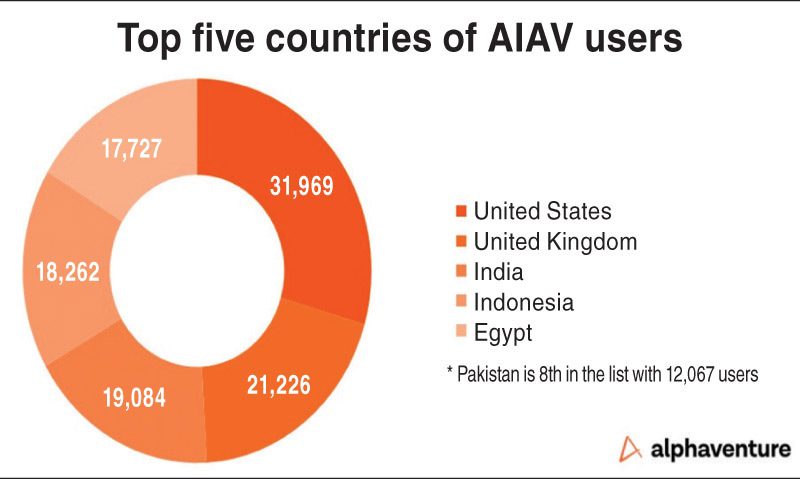Code writers making top-drawer artificial intelligence (AI) tools that gained traction at a mass scale worldwide don’t always belong to Silicon Valley.
Some of these geeks can be found in quintessentially middle-class Karachi neighborhoods like Gulistan-e-Jauhar. They went to local universities and still beat Ivy League graduates to the top of the AI hill.
AIAV, a personalization engine created by technology consulting firm AlphaVenture, has been on the crest of the AI wave since its launch earlier this month.

The tool adds a “context layer” on top of ChatGPT, a generative large language model (LLM), to help users create personalized raps, bios and dating profiles based on their social media persona.
Its founders claim — and the buzz on Twitter attests to it — that it became “one of the fastest generative AI products” to reach more than 200,000 user signups from 194 countries within three days.
Generative AI based on LLMs such as ChatGPT and Google NLP requires extremely high computational resources. AIAV has built a context engine that supplements their capabilities. It identifies relevant data — one’s Twitter feed, for example — on the fly. That data is then fed to the LLMs to improve efficiency.
Many people seem to think that ChatGPT is know-it-all. That’s not true, according to Saad Mughal, chief technology officer at AlphaVenture.
For example, your Twitter timeline may be full of political hot-takes. Yet asking ChatGPT to draft a short piece on your political leanings may turn up nothing. That’s because ChatGPT doesn’t access public data at that granular level. To get that kind of AI-based insights, one needs a “context layer” — an AI engine consisting of the code that runs into “thousands of lines” written by Mr Mughal and Hammad Khan, CEO of AlphaVenture.
So you put your Twitter handle — or anyone else’s, for that matter — on the “Twitter look-alike bot” and then wait for a few seconds for the AI engine to scan all your tweets. Its context layer filters your timeline to identify the most representative tweets and then sends the selected data to ChatGPT with specific queries. The result comes back in a short while in the form of a brief biography, personalised rap and dating profile.
The AI engine isn’t just a fun tool. It promises big money to its creators as the company is already exploring avenues to monetise it.
User feedback shows the rap feature – personalised songs ready to be composed and sung — is particularly popular.
Collaborating with AI-based tools that generate music — and turning one’s rap into an actual song — is very much on the cards. So is the idea of collaboration with dating apps that may want to embed the AI-generated dating profile feature on their platforms.
Admittedly, the context engine is still error-prone. For example, an AI-generated profile of former finance minister Miftah Ismail showed he studied electrical engineering at California State University (he didn’t) and held a master’s in electrical engineering from Stanford University (wrong, again).
Mr Mughal said these are teething problems and are being rectified as the tool improves itself with time. Using multiple LLMs (in addition to ChatGPT) will also improve the level of the engine’s accuracy, he added.




